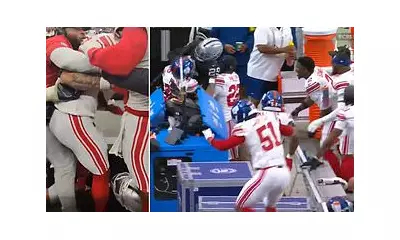
A college football announcer has found himself at the centre of a brewing storm after making what many are calling an "insensitive" and "unprofessional" joke about the popular diabetes and weight-loss medication Ozempic during a live broadcast.
The Controversial On-Air Remark
During what should have been a routine college football game coverage, the commentator directed attention toward dancers on the field before making a quip that would quickly backfire. In a moment that has since gone viral across social media platforms, he suggested the performers must be using Ozempic, referencing the medication's well-documented side effect of weight loss.
Immediate Backlash and Social Media Reaction
The off-the-cuff remark ignited immediate criticism from viewers and health advocates alike. Many took to X (formerly Twitter) and other social media platforms to express their disappointment, calling the joke "inappropriate," "body-shaming," and "trivialising" a serious medication used by millions for diabetes management.
"Making light of prescription medications that people rely on for serious health conditions is never acceptable," wrote one healthcare professional online. "This type of commentary perpetuates harmful stereotypes about body image and medical conditions."
The Official Response and Apology
Facing mounting pressure, the announcer has broken his silence with a formal apology. In a statement released through the broadcasting network, he expressed regret for his "poor judgement" and acknowledged the offensive nature of his comments.
"I sincerely apologise for my inappropriate remark during Saturday's broadcast," the statement read. "It was a poor attempt at humour that missed the mark, and I understand why it offended viewers. I have the utmost respect for all performers and individuals managing health conditions."
Broader Implications for Sports Broadcasting
This incident raises important questions about the boundaries of commentary in live sports broadcasting. While announcers often aim for lighthearted banter, this case highlights how quickly attempts at humour can cross into offensive territory when touching on sensitive health and body image topics.
The controversy also reflects growing public sensitivity around comments regarding weight and prescription medications, particularly as drugs like Ozempic become more prevalent in public discourse.
Network executives are reportedly reviewing the incident as part of their ongoing broadcast standards monitoring, though no formal disciplinary action has been announced publicly.





